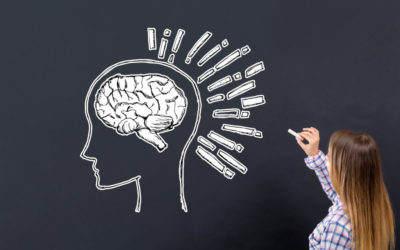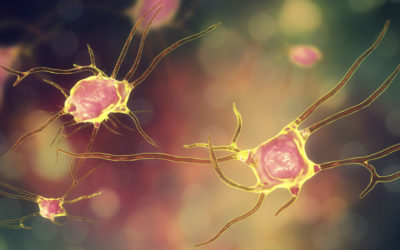Quick Hits
Daily brief research updates from the cognitive sciences

I presume you’re not just talking about stressed mothers stressing out their kids and/or grandchildren?
Not precisely. I’m talking about passing on stress activation patterns in DNA genetically.
Oh, that doesn’t sound good!
No, it isn’t good. We have known for quite a while that so-called epigenetic changes seem to be passed on to offspring.
What’s epigenetic?
All genes need to be activated and can be activated in different ways. Epigenetic markers are not a change in genes but how the existing genes are activated or not.
Ok, and this can be passed on?
Yes, the researchers from the University of Iowa, found out the precise mechanism. Clever things they are. But it is complicated. Basically instead of cleaning the hard drive, so to speak, and resetting genes, a protein released stops this “cleaning of the hard drive” and instead of the genes being reset the stress is passed on. Specifically in this case being present in unfertilised eggs.
And what changes?
In this case, Quote: “One of these newly silenced genes encodes the insulin receptor, which is central to metabolic changes with diabetes in humans, and which, when silenced, alters an animal’s physiology, metabolism, and stress resilience.”
Is this big news
Well, as I said, we already knew some of these things can be passed on. For example previous research has shown parents who have been though periods of starvation add an “eating” gene activation and this is passed on to children who are more likely to become obese. Read about that here.
Oh wow? So we should look after ourselves because the damage we do to yourselves can be passed on to our children.
Precisely!

Andy Habermacher
Andy is author of leading brains Review, Neuroleadership, and multiple other books. He has been intensively involved in writing and research into neuroleadership and is considered one of Europe’s leading experts. He is also a well-known public speaker speaking on the brain and human behaviour.
Andy is also a masters athlete (middle distance running) and competes regularly at international competitions (and holds a few national records in his age category).
Reference
Srijit Das, Sehee Min, Veena Prahlad.
Gene bookmarking by the heat shock transcription factor programs the insulin-like signaling pathway.
Molecular Cell, 2021
DOI: 10.1016/j.molcel.2021.09.022
More Quick Hits
Think Like a Kid to Learn Better?
Think like a kid may sound like a good piece of advice – but with some interesting twists…
Those Who Distrust Humans, Trust AI
We probably all know someone who is extremely distrustful of fellow human beings…
Watching TV With Your Child Can Help Cognitive Development
This is another study to show that there is no quick and easy answer to the question of screen time and children…
How Fear Gets Stuck in (Some) Brains
Fear is an important human emotion and essential to survival so not to be underestimated…
Your Brain Switches Between Remembering and Learning
Learning and memory are key functions of the brain and ones that attract a lot of attention and research…
How Daily Rhythms Help Your Brain Grow After Injury
Always nice to know that you brain can grow – and it is still met with surprise when I explain how this can happen…






